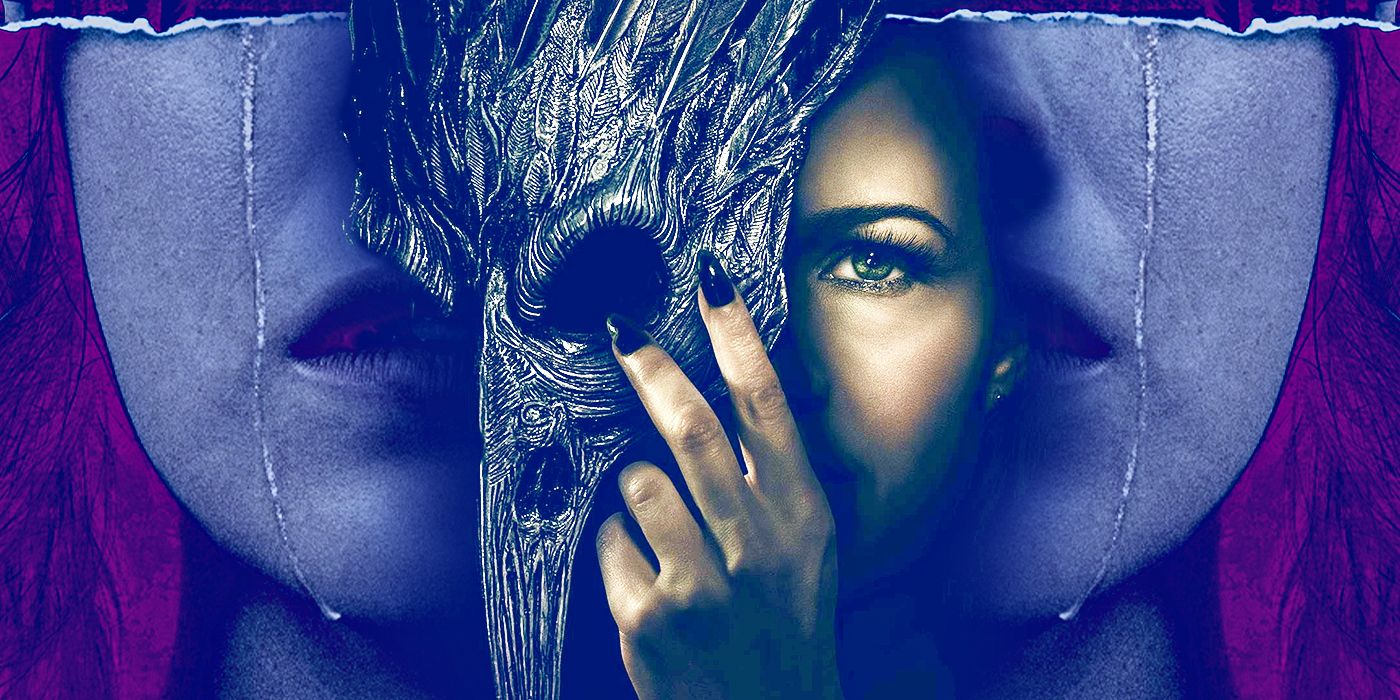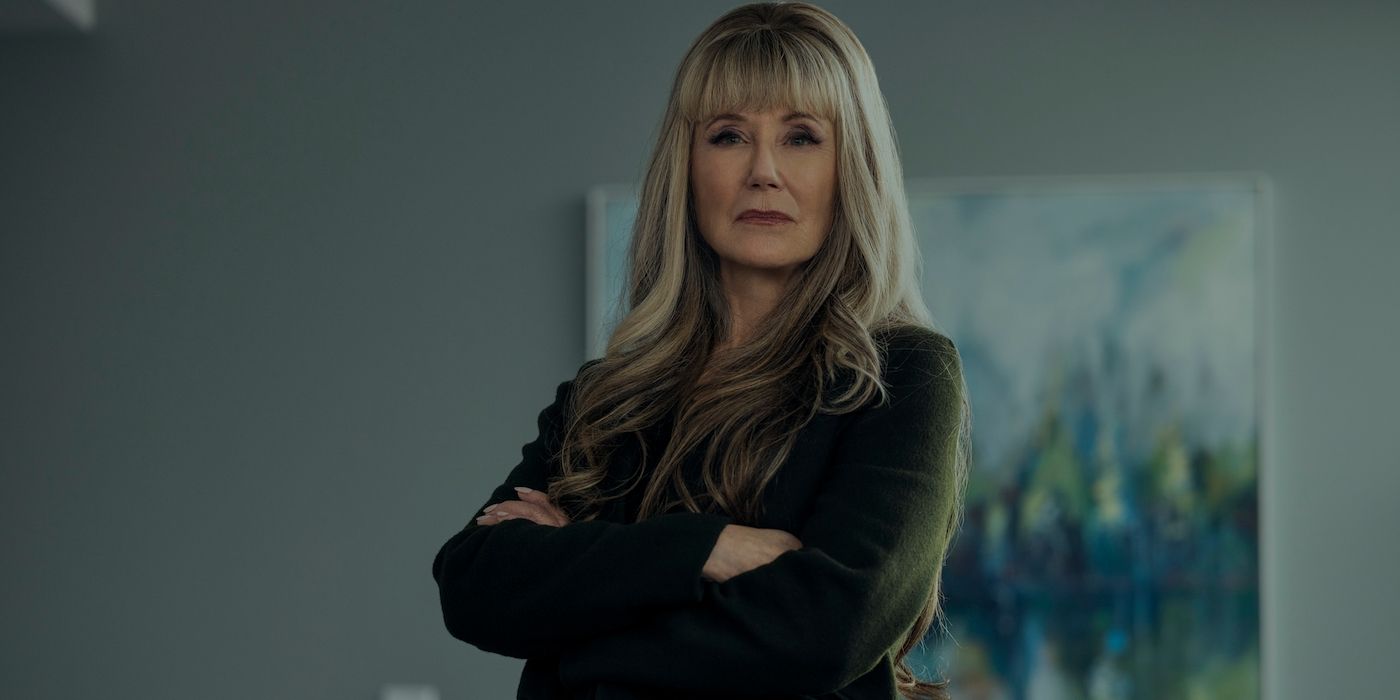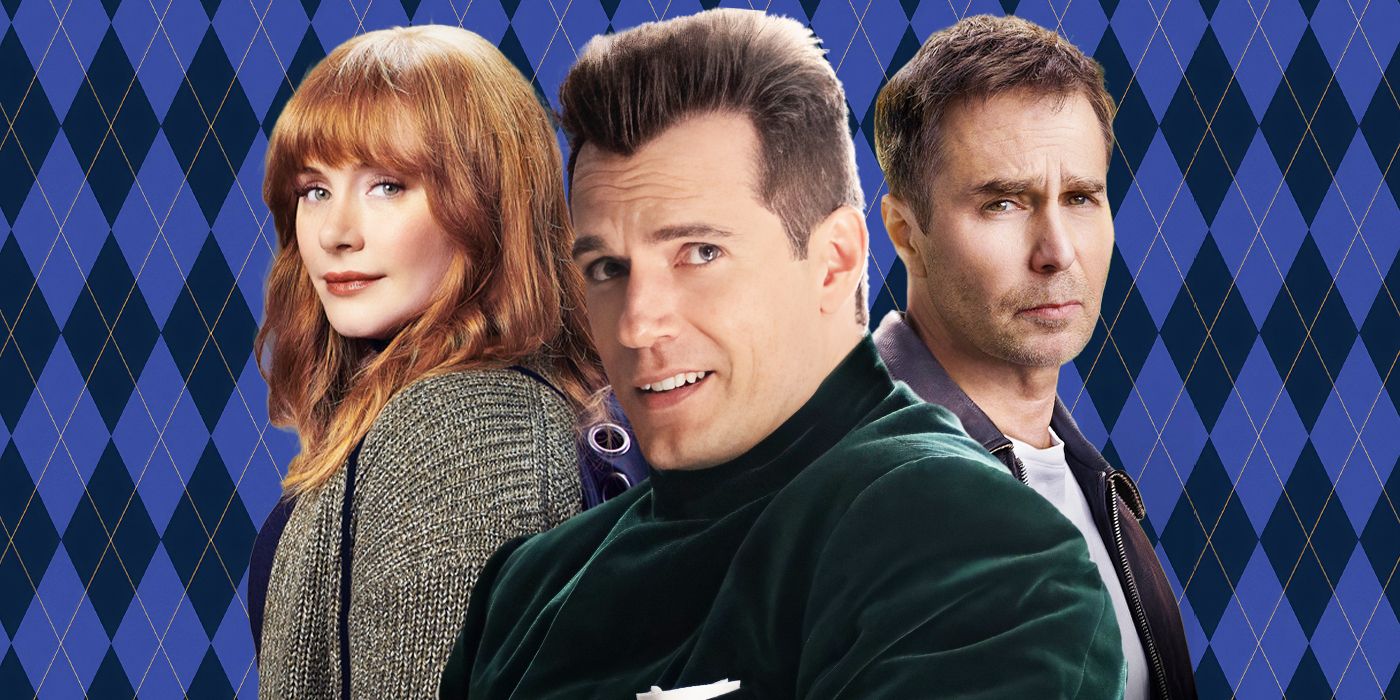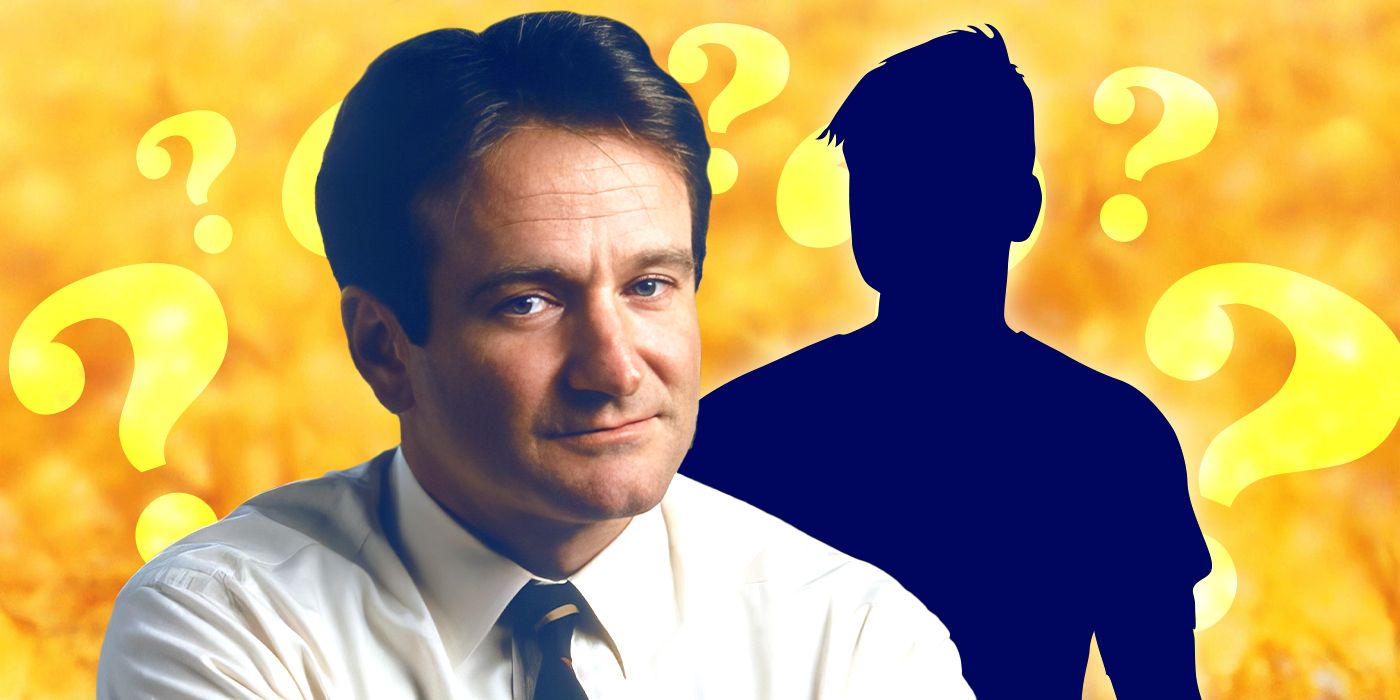Editor’s note: The below contains spoilers for The Fall of the House of Usher.
When Mike Flanagan‘s The Fall of the House of Usher hit Netflix, it promised to be another jewel in his crown of successful horror adaptations. Comprised of several works from the bibliography of Edgar Allen Poe, The Fall of the House of Usher focuses on the crumbling demise of the titular family, wealthy pharmaceutical moguls who each met grisly deaths. And while the premise itself is horror enough, no one could’ve predicted that the scariest bit in the show would have nothing to do with horror at all.
Releasing at a very relevant time, the second episode of the series, entitled “The Masque of Red Death” (directly ripped from one of Poe’s shorts) begins to address the issue of AI in films and TV. Though concerns over AI have become very prominent today, the discussion in The Fall of the House of Usher suggests that the foundations of the idea may have been around as early as the late ’70s. Told in a non-linear fashion, The Fall of the House of Usher jumps back and forth between the past and present as we unravel the mystery of what happened to the Usher family by witnessing brother/sister duo Roderick (Bruce Greenwood/Zach Gilford) and Madeline (Mary McDonnell/Willa Fitzgerald) Usher’s difficult rise to riches.
During a dinner conversation set in 1979 with Roderick and his wife Annabel Lee (Katie Parker), Madeline reveals that she quit her tech job over the frustrations of it being one big boys’ club. Annabel consoles Madeline, reminding her that money isn’t everything, but Madeline is unamused before going on to speak about how computers are the future and that they can be trained to do anything — from “financial markets, investments, predictive medical care,” she continues. “Hell, an algorithm could write movies and TV shows.”
The idea makes Roderick laugh, leading to her brother objecting by pointing out that even if an algorithm were written for media, it wouldn’t be good. Madeline, is again, unwavering and tells Roderick to wait and see. Perhaps it’s a crazy proposition to have some 40 years ago, but today with the rise of ChatGPT and other high-functioning AI programs and chatbots, it is a serious point of concern. Madeline’s monologue takes it one step further to computers replicating human consciousness. There is a dark look in her eyes as she seems to savor the idea of it, comparing artificial intelligence to harnessing immortality.
Flash forward to the next scene, set in present-day 2023, and Madeline is speaking about the same topic in her spacious office —this time to her grandniece Lenore (Kyliegh Curran), who has just completed a ten thousand-question survey and a journal she’s been working on every day for four months. As Madeline explains, it is all being uploaded to one of her algorithms that will source this information — along with all of Lenore’s social media platforms — in order to create an “AI approximation” of her, something that, for all intents and purposes, is essentially Lenore without the body and pulse. Madeline is still chasing her dream of immortality – but she isn’t concerned about the ramifications of her actions one bit. For her, it is all about securing a legacy.
As history goes, it’s always the rich and powerful that are concerned about leaving a legacy behind, as we see Madeline has an expansive collection of artifacts in her office she refers to as her “immortality collection.” However, there is also a level of aloofness associated with encroaching technology concerns, as is demonstrated when Lenore visits Roderick, her grandfather, directly after her conversation with Madeline. While Roderick is clearly smart and shrewd in his own business, he is oblivious — or at least withdrawn from the work his sister is doing as he refers to Madeline’s AI approximation model as turning Lenore “into a videogame or something.” After listening to Madeline spew her ambitions on immortality, it’s frightening to hear her brother say something so removed, comparing such volatile research to the likes of an Atari game.
How Does This ‘Fall of the House of Usher’ Story Connect to Issues Today?
Though the writer’s strike has thankfully ended after 146 days, there were – and still are – serious concerns about the usage of AI (like ChatGPT) to write scripts for TV and movies, essentially replacing the job of screenwriters and allowing studios to save a large amount of money. Thanks to the relentless efforts of the WGA, there are now regulations in place for the use of AI in scriptwriting, but the topic still remains a serious issue for actors as the SAG-AFTRA strike rages on. For actors, the biggest concern – alongside being compensated fairly for their work – is the implementation of AI, capturing an actor’s likeness entirely, rendering them futile beyond one day’s work. As the Executive Director and Chief Negotiator for the Actors’ Union Duncan Crabtree Ireland put it to Reuters, “[AMPTP] propose that our background performers should be able to be scanned, get paid for one day’s pay, and their company should own that scan of their image, their likeness, and should be able to use it for the rest of eternity.”
It is horrifying to imagine any actor being replaced by an AI likeness of themselves, but even more shocking is the accuracy this scenario holds to Madeline’s ambition on The Fall of the House of Usher — exactly as she described it in the past, and has now begun to put it into place with her own bloodline in the present day. Executives in places of power, like Madeline Usher, who have access to such technology, are trying to put such concepts in place in the real world. Our reality isn’t based on a collection of Edgar Allen Poe tales (or directed by Mike Flanagan), and yet we are dealing with the same issues.
These AI plot points in The Fall of the House of Usher are considered the “non-horror” elements of the show, but the implications are more haunting than anything that happened to the Usher family. Simply put, studios are getting way too comfy in Uncanny Valley and while it is sad that actors have to strike from doing what they love, it’s necessary for SAG-AFTRA to fight for their rights and the rights of future generations of actors so that Madeline’s machinations of immortality through the inhumane use of AI never come to fruition.
All episodes of The Fall of the House of Usher are available to stream on Netflix.





